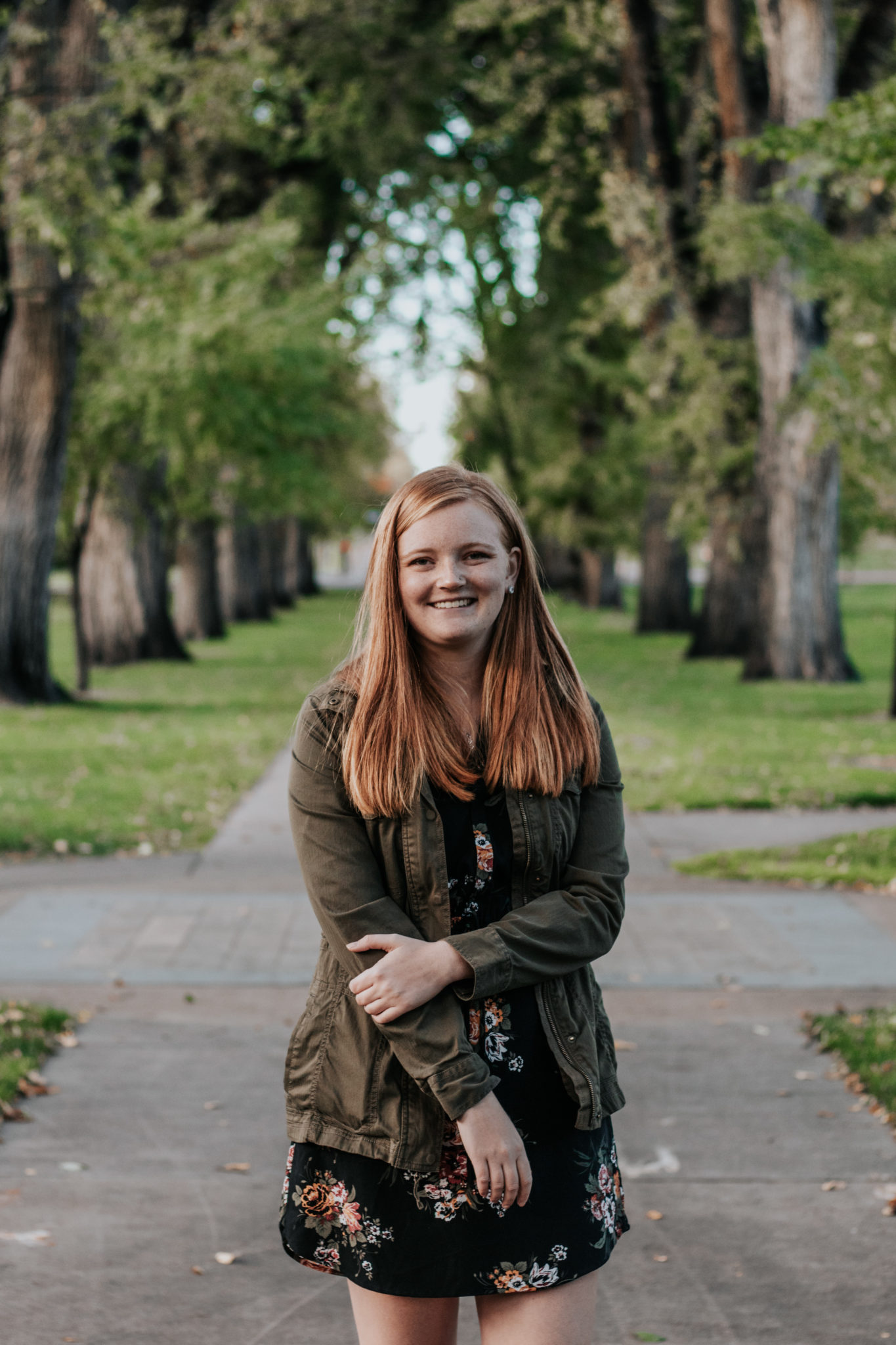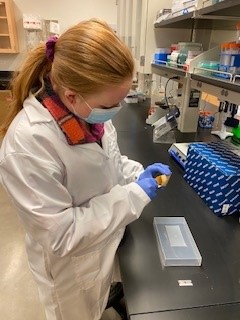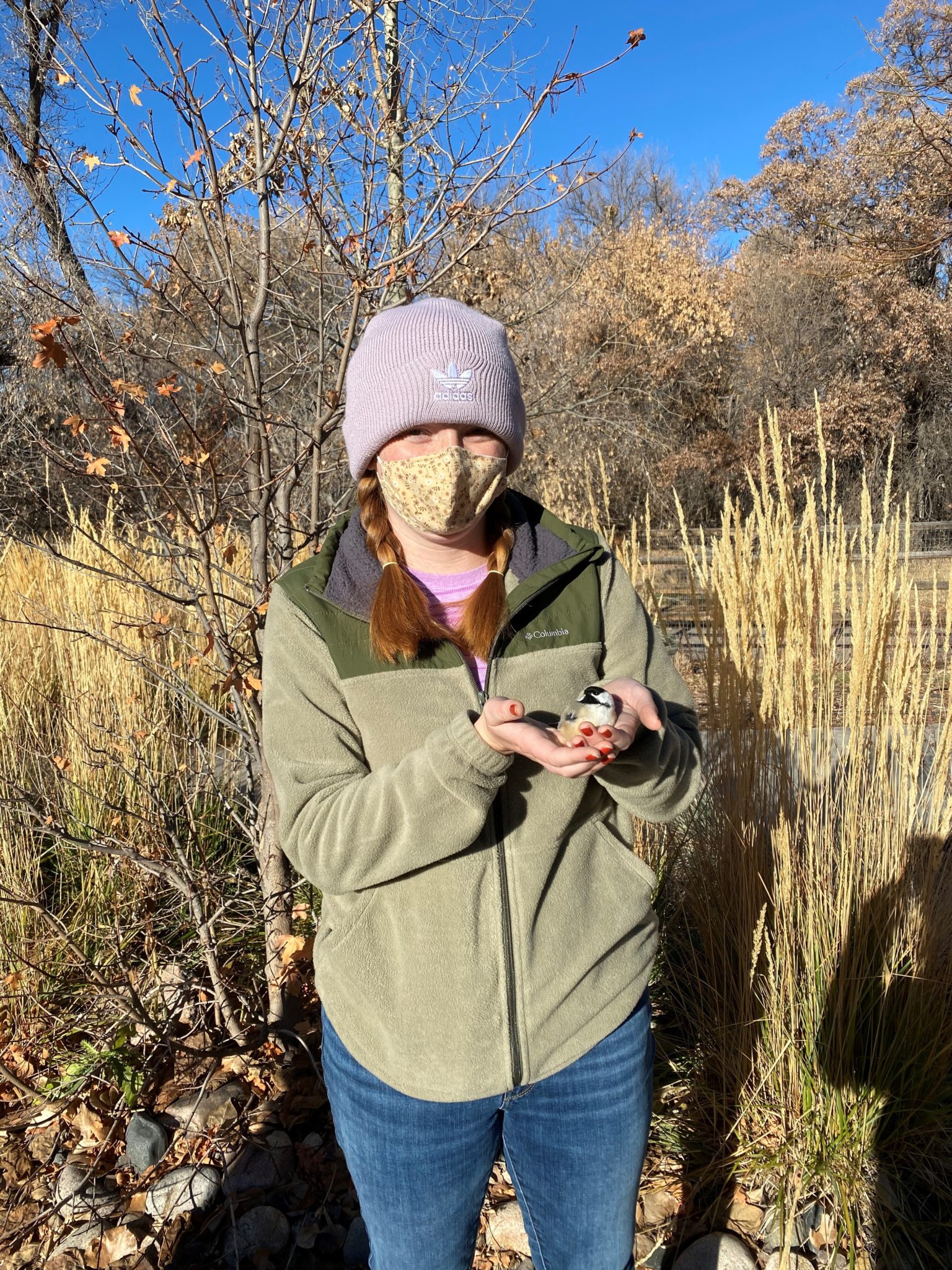Sophomore Colorado State University biology student Noelle Mason has a passion for the black-footed ferret, and she’s working to protect it – along with many other species – using advanced biotechnology.
 Mason is minoring in interdisciplinary conservation biology, writes science articles for the Rocky Mountain Collegian, is an undergraduate researcher in Kristen Ruegg’s lab, and in her freshman year was a member of Amplify, the College of Natural Science’s learning community.
Mason is minoring in interdisciplinary conservation biology, writes science articles for the Rocky Mountain Collegian, is an undergraduate researcher in Kristen Ruegg’s lab, and in her freshman year was a member of Amplify, the College of Natural Science’s learning community.
Mason’s passion for animal conservation was sparked back in high school. She initially wanted to be a park ranger, but fell in love with the black-footed ferret in her AP biology class. She had learned about scientists’ ability to clone the ferret with advanced biotechnology, and she thought, “Oh my God, that’s what I want to do!” she said. “[I want to] be able to use this sort of cutting-edge biotechnology to help save endangered species.”
Mason would stay after class to help with DNA extraction, started learning proper lab techniques, and researched new methods to revive struggling species. A spark had lit within her.
Undergraduate research
Now at CSU, Mason is translating her passion into a degree in biology. In her undergraduate research as part of Kristen Ruegg’s lab in the Department of Biology and the Bird Genoscape Project, she focuses on streamlining the technique used to extract DNA from blood samples.
“Noelle’s undergraduate research will have important implications for our lab, and the field as a whole,” said Marina Rodriquez, a Ph.D. student in Ruegg’s lab. “Her work on DNA extractions will allow researchers to get higher DNA yield and quality from small amounts of blood.”
This research is especially important when studying birds because many of them are very small-bodied and extracting blood can be difficult.

“For genomic research, every sample is precious, and it’s important to make sure we’re extracting DNA as efficiently as we can,” said Teia Schweizer, the lab and collections manager in the lab and Mason’s direct supervisor.
Mason is also highly regarded by her colleagues for her work ethic and enthusiasm.
“She is constantly coming up with ways to improve her research, whether through methodology or putting in extra time to make sure everything is going smoothly,” said Rodriguez. “The time and effort she puts into her work is very impressive for her stage as a researcher. Her willingness to present her work and receive feedback is also impressive for her stage.”
Mason hadn’t initially been excited about birds, but was very interested in the genomics side of CSU’s bird-related research. As a part of Ruegg’s lab, however, she has found a new interest in avian conservation.
“I knew [this type of research] existed, but in very rare corners of academia, and I didn’t realize that it existed at CSU,” she said. “Now I’ve really come to enjoy working with birds and find myself looking at birds like wherever I go.”
Watch Noelle’s Instagram takeover:
Writing for the Collegian
Mason took her interest in science to the communications world when she started writing for the campus newspaper the Collegian in spring 2021.
“I was interested in writing for the Collegian because I didn’t feel like there was a whole lot of focus on science,” she said. “I joined hoping to provide an extra lens into nature and into science at CSU, and to be able to communicate that stuff to a broader audience.”
Mason had always wanted to share her appreciation for nature and scientific research, and the Collegian provided the perfect outlet for that. She’s written about species longevity in Colorado, CSU’s COVID-19-related research, the new Cannabinoid Research Center established by alumna Leslie Buttorff, Fort Collins’ carbon report card, and of course, the black-footed ferret.
While she’s covered many topics in a short time span, writing about nature and conservation is Mason’s favorite subject.
When asked why people should care about nature and conservation, Mason responded: “Why not care about nature? Why not care about living things, and why not care about the human impact that we’re having? These things were here long before us, and now we’re having dramatic impacts on things that have no say in it. So, I think being able to try to reverse that impact is really important.”
Involvement on campus

Mason is the perfect exemplar of successful involvement on campus. With so much going on, she’s been able to create an amazing community and tons of opportunity for herself at CSU.
“Noelle absolutely personifies the term ‘go-getter,’” said Ruegg, the principal investigator on the Bird Genoscape Project. “She is sharp, personable, curious, engaged and a joy to have around.”
To incoming students, Mason said: “If you felt out of place in high school, you will have a place in college, and you’ll definitely be able to find it. And if you’re interested in something, ask questions about it and don’t be afraid to advocate for yourself … you’re your own biggest advocate.”
Mason’s success at CSU is laying the groundwork for her career in conservation genomics, and her peers and colleagues have no doubt she’ll do big things.
“She is without a doubt on the path to shaping whatever field she sets her heart and mind to in the next 20 years,” said Ruegg.
About Rams Shape Science: Meet some of the extraordinary students, faculty, and staff in the College of Natural Sciences who are shaping the future of science and our society.